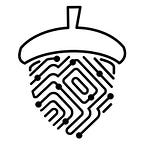Teens In AI-2018 Day 1–20th Aug’18
DAY 1
Day one of our #TeensInAI2018 Accelerator began with a welcoming speech in which Elenashared her journey, how she made the decision to try and positively impact the world and the importance of working with the teens. Elena also explained how passionate she is about the Teens In AI mission, even turning down a yearly six figure salary to be able to focus on it and see it through.
The morning continued with the BBC’s Head of Emerging Technology and Strategic Direction Ali Shah speaking about “AI Now, and the Future”. Ali began by passing out bananas to the group, on which he asked everyone to write down what came to mind about AI. This was a really different approach which the group found “cool” and “imaginative” and was the start of a discussion about thinking differently. Ali explained the concepts of design thinking, and then gave teens a list of challenging questions from the world of AI including: “how can we harness the power of AI to help people judge if what they are reading, listening, or seeing is true or false?”; “how can AI be used to make sure online interactions are inclusive and positive, and develop positive mental wellbeing?” and “how do we make sure AI doesn’t run away from us?”.
Ali emphasized that jobs themselves are going to start to matter less and less, and that what will matter is the difference you make and positive impact you have. He explained to the teens how they will have to choose what they want to use AI for, and at the end of the day the question to answer will be, “what difference do I want to make?”.
The morning then continued with introductions from the rest of the team, firstly Sinead O’Brien, Special Projects Lead from the BBC and then our expert mentors (Yasmina, Brendan, Hannah, Asma and Peter). This was followed by introductions from Rob, Hazel, Caroline, Shailene, Ryan, Callum, Leanne of the BBC UX&D (User Experience & Design) team, with descriptions of their work designing apps and websites, coordinating on the structure of how these will function, and researching and testing their products in the market.
In their words, design thinking as a whole is about coming up with ideas about how to solve problems to do with real people, learning to understand people’s problems and needs, and creating services that they will come back and use. Overall, design thinking is about big thinking, creating and exploring possibilities, and thinking outside the box. They gave the example of Doug Dietz, a designer at GE Healthcare and the proud creator of a new MRI machine. Then he met a young patient in tears from having to go inside this machine. Dietz immediately recognised a change was necessary, and then attended a design thinking course. He was so inspired to improve the experience that his next designs included a pirate-themed one where a young patient enjoyed the experience so much they even asked to return the next day.
The BBC UX&D team then described their work with CBBC and Cbeebies, having to make it accessible to everyone, and how they did that; for kids with visual impairment, they go and get insight from real kids. They make a prototype, give it to children with visual impairment, let them try it for themselves, receive feedback, improve their product, and the cycle continues until a final product is complete. Design thinking is about making decisions, and continuing to improve.
They then explained the concept of the ‘Double Diamond’, a four ‘D’ work process which would be implemented during the accelerator. On the first day, the key word is Discover, it is all about thinking big, being explorers and understanding problems, and there are no judgments. The second day is to Define, understanding the problem, choosing what to focus on, then finishing the day by starting to think big again, and come up with ideas. The third day is Develop, being a judge and a warrior, and finally on the fourth day it is time to Deliver.
The day then finished with a talk and guided meditation from Google’s Rio M. Davila Otoya, who is a regional lead at Google Launchpad, helpingstartups grow through business, technology and leadership mentoring. Rio spoke about mindfulness as a core skill, about how empathy was re-emerging as a critical element of personal and business success. Rio really inspired the audience with the power and transformative attributes of mindfulness.
Originally published at Acorn Aspirations.
